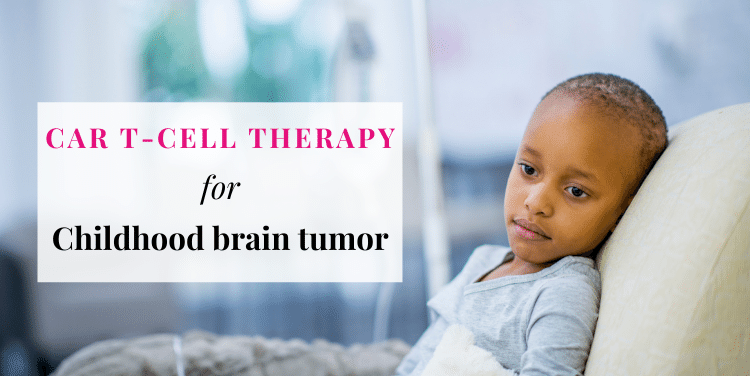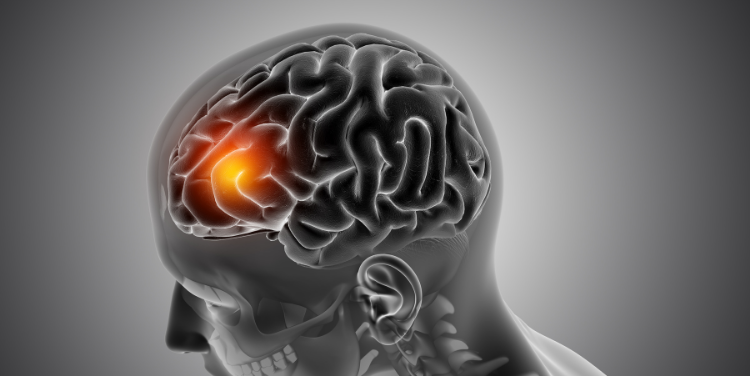2021 dec: CAR T-Cell therapy is currently approved for some forms of leukemia, lymphoma, and multiple myeloma. Researchers have now also developed the corresponding GD2 CAR T-cell therapy for the treatment of neuroblastoma, i.e., childhood brain tumors. Lung cancer, stomach cancer, liver cancer, breast cancer, and other adult cancers have the highest incidence. When discussing children’s cancer, many people instinctively believe that it is identical to adult cancer.

However, whether it is the cause of cancer or the type of cancer, there is a significant difference between childhood cancer and adult cancer. The most frequent childhood tumour is neuroblastoma, which is more common than lung cancer, gastric cancer, and other cancers. Neuroblastoma can account for half of all cancers in children under the age of five, greatly exceeding the proportion of various malignancies in adult cancers.
De 5-jaarsoverleving voor neuroblastoompatiënten is echter nog steeds niet bijzonder groot, en bijna 40% tot 50% van de patiënten is nog steeds niet in staat om op lange termijn te genezen. Evenzo, als de tumor terugkeert, loopt het kind nog steeds risico, vergelijkbaar met wat er gebeurt als een volwassen kanker terugkeert.

Is there a new treatment available?
CAR-T-celtherapie has opened up a whole new universe in the field of advanced relapse and refractory B-cell cancers in recent years, and it has also allowed people to witness how effective it can be.
As a result, researchers have created a GD2-CAR-T cell therapy for the treatment of neuroblastoma for the matching target of neuroblastoma. The findings of the clinical study were published in the most recent issue of “Science Translational Medicine.”
Deze studie omvatte in totaal 12 kinderen met recidiverend/refractair neuroblastoom. Over het algemeen werd de medicatie goed verdragen en werden er geen off-target effecten gezien. Ondanks het feit dat het geen objectieve klinische respons opleverde, merkten onderzoekers bij sommige individuen een echt therapeutisch voordeel op.
Patiënt 25/010 is een 8-jarig meisje met grootschalige neuroblastoommetastasen, waaronder significante botmetastasen (recidief na vierdelijnsbehandeling). De algemene toestand is drastisch verbeterd na 28 dagen van CAR-T-celtherapie, en het tumorweefsel heeft ook wijdverspreide tumornecrose aangetoond.
Patient 25/013 is a 10-year-old girl who has had five treatments for multiple recurrent localised neuroblastomas. There were tumour nodules in the neck before therapy, but no distant metastases. An MRI showed that the tumour had shrunk after treatment. Following a tumour biopsy, it was discovered that the tumour had significant necrosis.
Patiënt 25/018 is een 10-jarig kind met terugkerend neuroblastoom dat zich door zijn lichaam heeft verspreid. Hij had drie sessies voor en na, en zijn problemen werden verlicht als gevolg van de therapieën.
However, while this study has demonstrated that the treatment is effective, after experiencing the peak of CAR-T cell therapy, the long-term expansion of CAR-T cells is not visible, making the treatment effect ineffective. It finally resulted in tumour recurrence, however, before that, this therapy helped 013 and 018 live for approximately 5 months longer.
Although this new CAR-T cell therapy cannot match the efficacy and durability of CD19-CAR-T cell therapy in haematological cancers, it demonstrates that CAR-T cell therapy can still be employed in the entity once a suitable target is identified. In the treatment of tumours, it has potent anti-tumor effects. To improve its therapeutic efficacy in solid malignancies, researchers will combine CAR-T activation with immune checkpoint drugs (PD-1 inhibitors).
The safety of this solid tumour CAR-T cell treatment is currently assured. The patient got CRS as a result of the medication, although no major neurotoxic reactions occurred. Medical teams receiving CAR-T cell therapy may soon have to respond to CRS as a matter of course. CAR-T cell therapy still has a long way to go in terms of overcoming solid tumours, but it will get there someday.

